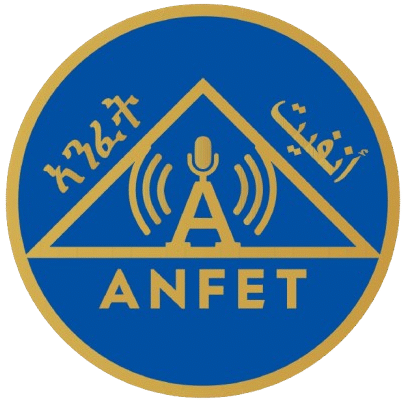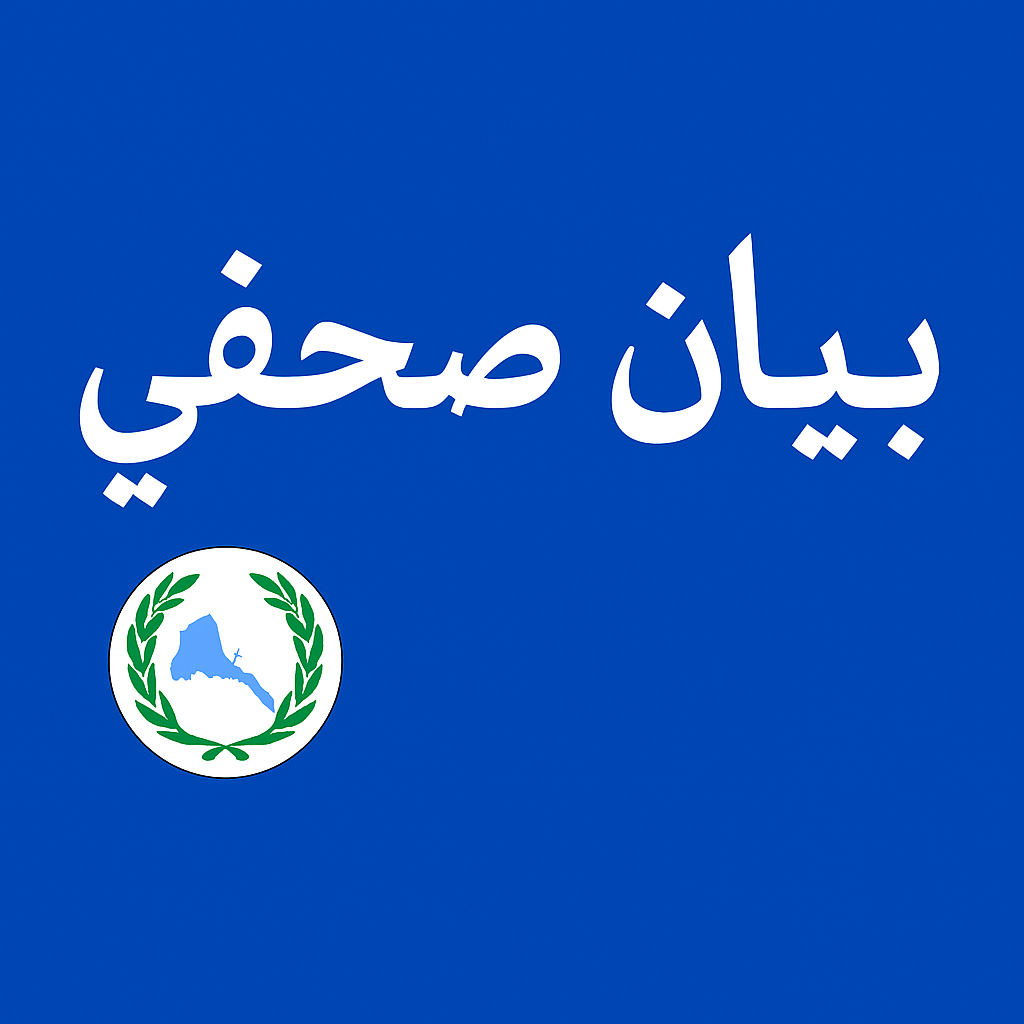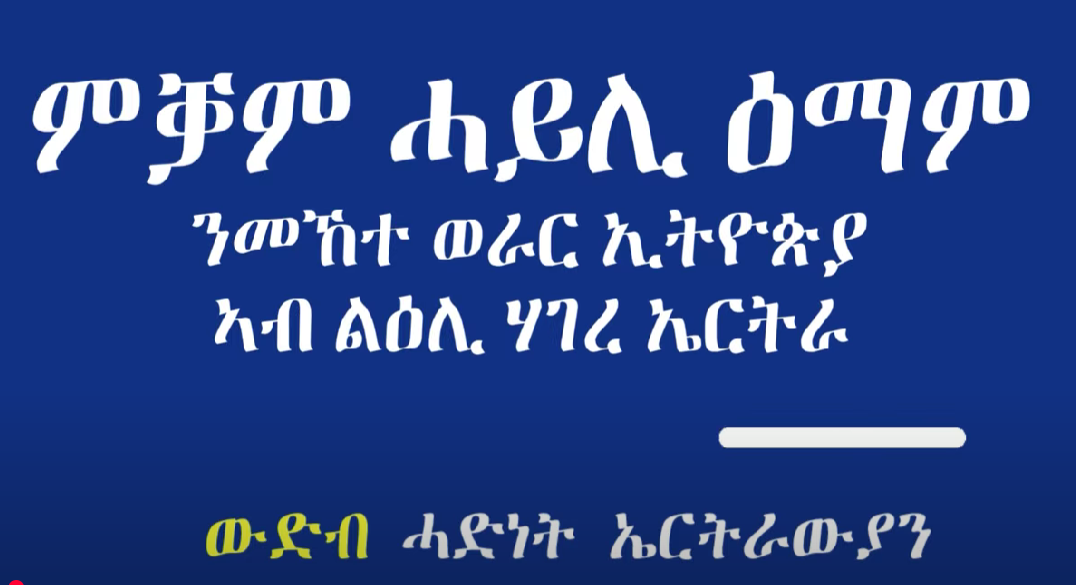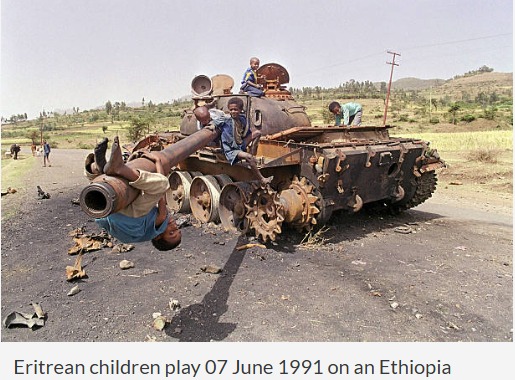
SPECIAL EDITION-ANFET – June 5, 2025
Long Road to Sovereignty: Colonial Betrayals, Resistance, and Independence”
Over the past five centuries, Eritrea has endured successive waves of foreign domination, from Ottoman and Egyptian rule to the colonial conquests of European powers. In the past two centuries of modern history, these external forces intensified, with Eritrea becoming a strategic battleground, first under Italian colonization, then under British administration, and later under Ethiopian annexation. Eritrea was seized by Italy, becoming an Italian colony from 1889 to 1941 and serving as a strategic outpost in East Africa. Emperor Menelik II of Ethiopia, at the time, neither claimed nor defended Eritrea from the brutal Italian dictatorship under Benito Mussolini. Instead, he preferred to trade Eritrean territory and its Red Sea coastline for weapons, enabling him to expand his kingdom southward to the borders of Kenya, and Somalia.
After Italy’s defeat in World War II, Eritrea came under British administration until the United Nations intervened to determine its fate. In 1952, Eritrea was federated with Ethiopia under a UN resolution, but the arrangement quickly deteriorated as Ethiopia moved to annex Eritrea in 1962, dissolving its autonomy. This marked another lost opportunity for coexistence, as the federal system—one that many Ethiopian provinces hoped to adopt—was effectively betrayed.
Under Emperor Haile Selassie, Eritrea was fully absorbed into Ethiopia, leading to widespread resistance. The Eritrean Liberation Front (ELF) and later the Eritrean People’s Liberation Front (EPLF) spearheaded a 30-year armed struggle against Ethiopian rule. In 1974, Emperor Haile Selassie was overthrown in a military coup, and one of the coup leaders, General Aman Andom, an Eritrean by origin, proposed a peaceful political solution to end the war between Eritrea and Ethiopia. His efforts were met with violent opposition, resulting in his assassination along with sixty other government officials advocating for democratic change.
The conflict intensified under the Derg regime, led by Colonel Mengistu Hailemariam, which was backed by the Soviet Union. The Derg’s brutal tactics, including mass killings and forced conscription, further fueled Eritrean resistance.
After years of warfare, the EPLF successfully defeated Ethiopian forces in 1991, coinciding with the fall of the Derg regime. Eritrea held a referendum in 1993, where 99.8% of voters overwhelmingly chose independence. Eritrea was subsequently recognized as the 182nd member of the United Nations, marking the official end of Ethiopian rule.
The Failure of the state of Eritrea to establish democratic institutions.
Since Eritrea’s independence, the nation has struggled with the absence of a constitutional government, falling under the control of one-man rule without democratic accountability. While a legislative apparatus with an elected executive could have guaranteed national security, political stability, economic prosperity, and diplomatic strength, Eritrea instead became isolated, engaging in conflicts across the region. Under President Isaias Afwerki, Eritrea initiated conflicts with Sudan, Ethiopia, Yemen, and Djibouti without clear provocation, destabilizing relations across the Horn of Africa. The most devastating was the war in Tigray in 2020, where Eritrean forces—alongside Ethiopia’s federal government, Somalia, and the United Arab Emirates—engaged in a two-year campaign that devastated Tigrayan livelihoods.
A False Promise? How Isaias Afwerki’s Bluff Led PM Abiy into the Red Sea Mirage
The 2018 peace agreement between Prime Minister Abiy Ahmed and President Isaias Afwerki ignited hopes across Ethiopia, Eritrea, and the world. Many believed it would bring a permanent resolution to the two-decade-long border conflict centered around Badme, finally settling demarcation disputes, restoring diplomatic relations, and fostering economic cooperation through trade, commerce, and cultural exchange. The vision included unrestricted border crossings, infrastructure development, and joint energy investments in solar and hydroelectric power.
Yet, instead of pursuing reconciliation, the two leaders turned their focus to waging war against Tigray, seeing it as an obstacle to their vision of shared rule over both nations. Across Eritrea, mass rallies echoed the slogan: “Tedemrenal—Aand-honenal” (ተደምረና ኣንድ ሆነናል)— “We are now united to be one [nation].” However, Eritreans soon faced a shocking revelation. Isaias Afwerki’s surrender of Eritrean sovereignty. In a public ceremony in Addis Ababa, the heart of Ethiopia’s capital, Isaias Afwerki symbolically relinquished Eritrea’s throne to Prime Minister Abiy Ahmed, declaring that Abiy could freely enter Massawa and Assab—without permission, without resistance. Under any normal circumstance, such an act would have ignited a national revolt. The Eritrean people and its defense forces, guardians of the nation’s sovereignty, should have risen in defiance. The military, bound by duty, should have intervened with a coup d’état, proclaiming that Isaias Afwerki had committed treason—stripping him of power and leaving him stranded in the very city where he chose to surrender his nation’s dignity.
This unexpected endorsement emboldened Abiy’s imperial ambitions, fueling his vision of a Greater Ethiopia with direct maritime access through Assab. The idea that Eritrea could be absorbed into Ethiopia’s expansionist project raised alarm among Eritreans, who feared a return to colonial-style occupation—not through force, but through deception.
The TPLF-Tigray Dilemma: Strategic Alliance with Eritrea or Prolonged Neutrality
Under the Pretoria Agreement, Tigray remains effectively held hostage by Prime Minister Abiy Ahmed, deprived of its political autonomy and territorial stability. Instead of facilitating the return of internally displaced Tigrayans to Welqayit and Humera, allowing free and fair elections, and resolving disputes with the Fano-Amhara movement, Abiy has maintained political restrictions, preventing Tigray from fully integrating into Ethiopia’s federal system.
Today, the TPLF stands at a crossroads, facing two critical exit strategies:
- Neutrality – Choosing to remain politically inactive, neither siding with Eritrea nor Ethiopia, maintaining the status quo at the cost of widespread starvation, economic collapse, and statelessness—effectively leaving Tigray in limbo.
- Strategic Alignment with Eritrea – Entering into an alliance with Eritrea, challenging Ethiopian dominance militarily, and securing access to Massawa’s port, severing Addis Ababa’s political and economic influence over Tigray.
Regardless of the path chosen, one undeniable truth must be clearly acknowledged: Neither Isaias Afwerki nor Abiy Ahmed can be trusted. Any option Tigray pursues will be temporary, serving only as a survival mechanism until both Eritrea and Ethiopia transition to accountable, democratically elected governments in the near future.
The Sudan Factor: A New Geopolitical Battlefield
Following the fall of Khartoum to RSF forces, Sudan has plunged into a deepening political and socio-economic crisis, forcing millions to flee into neighboring countries. As Sudan struggles with internal fragmentation, new geopolitical alignments are taking shape, particularly as Prime Minister Abiy Ahmed, backed by the UAE, escalates his ambitions for Red Sea access. His declaration of war against Eritrea, framing the port of Assab as Ethiopia’s rightful gateway, has triggered a regional response led by Isaias Afwerki, who is now assembling an alliance of forces to counter Abiy’s expansionist goals.
For decades, Isaias Afwerki thrived on regional conflicts, often acting as a spoiler rather than a stabilizer. However, in this unfolding confrontation, his role may be fundamentally different. If Eritrea’s engagement truly prioritizes national sovereignty rather than proxy warfare, it could mark a historic shift—a transition from a perpetual instigator of conflicts to a strategic broker for regional balance. On the other hand, Eritrea’s speculated role in training East Sudanese Beni Amer fighters raises questions about Burhan’s military strength and whether Eritrea is securing long-term influence in Eastern Sudan—perhaps even positioning itself for territorial leverage should Sudan remain politically divided. Yet, regardless of who ignites the war, its conclusion will lead to one inevitable outcome: a reckoning for all authoritarian forces and a moment of political transformation that could finally return power to the people across Eritrea, Ethiopia, and the Sudan.
A Message to the Ethiopian People: Reflections on War and Eritrea’s Sovereignty
The darkest days of Ethiopia’s political turmoil should have ended with the fall of Mengistu Hailemariam, yet three decades have passed with no lasting peace—resources consumed, opportunities lost, hopes shattered. We do not seek to judge how your lives have changed under Prime Minister Abiy Ahmed, you are living through the realities of his rule.
Eritreans once held high hopes for peaceful coexistence with Ethiopians. But instead of peace, tensions deepened, and for both Eritreans and Ethiopians, life has only become more uncertain. From Menelik II to Haile Selassie, through the Derg and the EPRDF, history should have taught that war does not bring solutions—it only prolongs suffering.
Yet, Isaias Afwerki, acting as a mentor to Abiy Ahmed, has deeply influenced Ethiopian governance, eroding key institutions:
- Higher education has been dismantled, preventing the intellectual growth needed for a stable future.
- Government employment is now reserved for the elite, solidifying control rather than serving the people.
- The primary function of the Ethiopian state has become warfare, not governance or development.
But the next war with Eritrea—should it come—will not be fought against Isaias Afwerki. It will be fought against the Eritrean people. The same people who, for decades, resisted occupation—not as aggressors, but as defenders of their own land, their dignity, and their right to exist as a sovereign nation.
The world has seen Eritrea triumph against superpowers not through wars of aggression, but through wars of liberation—fought for the just cause of independence, sovereignty, and the enduring existence of the Eritrean nation.
Ethiopia stands at a crossroads. Eritrea stands ready to defend its future. Let history be the guide, let wisdom prevail over ambition, and let war not be the path forward.
Eritrea’s Sovereignty at Stake: A Call to Action
The threat posed by Prime Minister Abiy Ahmed’s ambitions to claim independent access to the Red Sea and encroach upon Eritrean sovereignty must be taken very seriously. This responsibility cannot be left to Isaias Afwerki alone—it is the Eritrean people who must take charge of their nation’s defense and future.
We are witnessing the erosion of international order, where the United Nations has become increasingly ineffective in enforcing the very laws designed to protect sovereign nations from aggression. The question must now be asked: Who will uphold international law when global powers themselves are setting dangerous precedents for expansionism?
Consider the current state of the world:
- Russia continues its invasion of Ukraine, with Eritrea’s leadership openly supporting Putin’s ambition to restore the imperial territories of the USSR.
- The United States is entertaining its own territorial moves, including plans to annex Greenland, reclaim Canada, and regain control over the Panama Canal.
- Israel is moving forward with the annexation of Gaza, while U.S. interests focus on transforming it into the ‘Riviera of the Middle East.’
- China remains fixated in Taiwan, waiting for the outcome of the war in Ukraine to determine its next course of action.
- The European Union is engulfed in its own NATO crisis, simultaneously overwhelmed by escalating tensions across the Middle East.
In this new global reality, Eritrea must recognize that no external force will guarantee its sovereignty or security. The Eritrean people must mobilize, organize, and resist any attempt to undermine their independence. The battle for Eritrea’s survival will not be decided in diplomatic chambers—it will be determined by the will and actions of its people.
Conclusion: Eritrea’s Path Forward—Beyond War, Toward True Liberation
The impending war between Eritrea and Ethiopia presents a defining moment for Eritrea’s sovereignty. But sovereignty is more than territorial independence—it must also mean political freedom, justice, and accountability.
For decades, Isaias Afwerki’s regime has justified autocratic control under the banner of national security. Yet, true security does not come from silencing opposition, imprisoning journalists, or crushing democratic movements—it comes from empowering the people to lead their own future.
Regardless of how this war unfolds, one truth remains unshaken: the Eritrean people must reclaim their rightful role in shaping their nation’s destiny. Eritrea’s independence cannot remain half-complete, bound by oppression at home.
Victory against Ethiopia must be followed by a victory for democracy. That means:
- Releasing political prisoners and journalists, ending decades of suppression.
- Reestablishing opposition parties to restore political pluralism and fair governance.
- Drafting a constitution that guarantees democratic accountability and safeguards national sovereignty through elected leadership, not unchecked authoritarian rule.
The war for Eritrea’s future cannot end with military victories—it must end with the people regaining their voice, their freedom, and their power.





